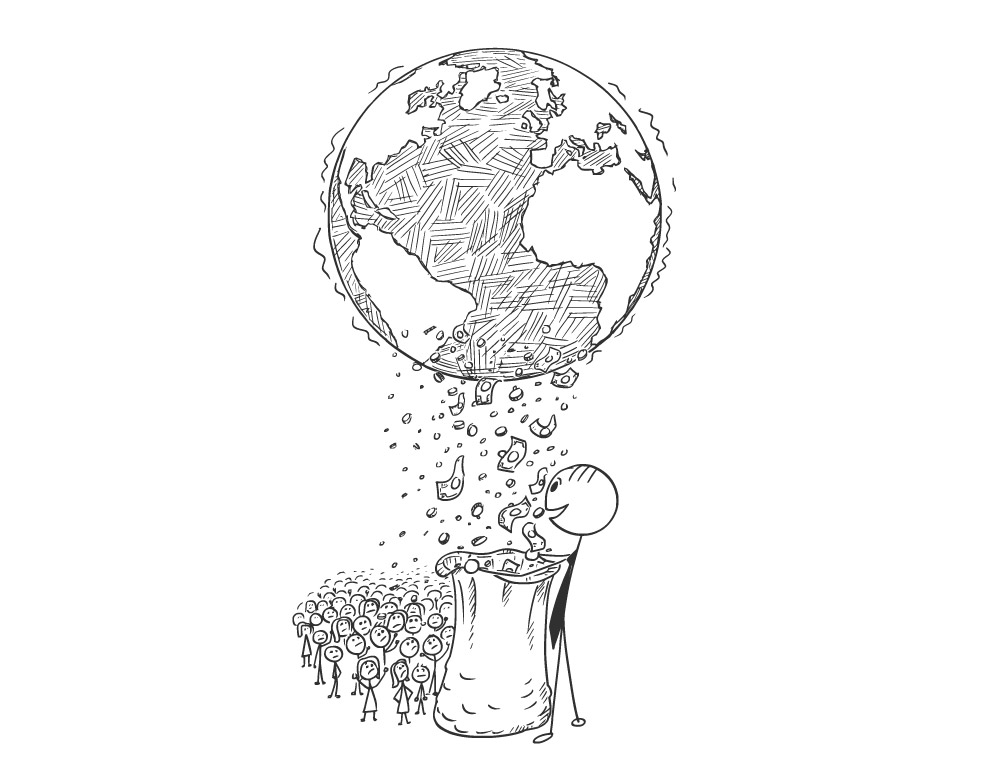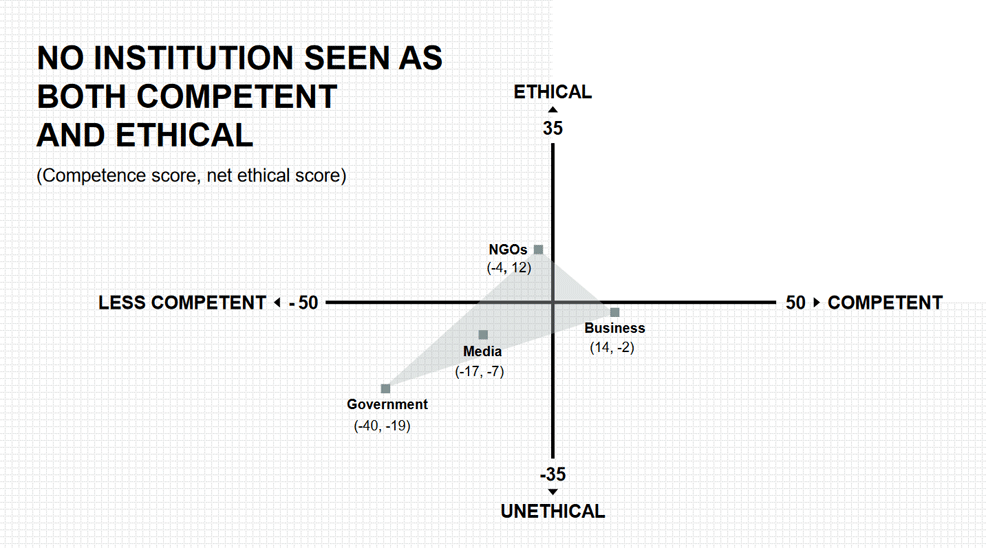
21st January 2020 Capitalism: more harm than good? A new survey reveals that despite a strong global economy and near full employment, a majority of respondents in every developed market do not believe they will be better off in five years' time, and 56% believe that capitalism in its current form is now doing more harm than good in the world.
Credit: Zdenek Sasek
"We are living in a trust paradox," says Richard Edelman, CEO of Edelman, a global communications firm that partners with businesses and organisations to evolve, promote and protect their brands and reputations. The 2020 Edelman Trust Barometer is the firm's 20th annual trust and credibility survey. "Since we began measuring trust 20 years ago, economic growth has fostered rising trust," Edelman continues. "This continues in Asia and the Middle East but not in developed markets, where national income inequality is now the more important factor. Fears are stifling hope, and long-held assumptions about hard work leading to upward mobility are now invalid." The concerns are wide-ranging and deep. Globally, most employees (83%) are worried about job loss due to automation, a looming recession, lack of training, cheaper foreign competition, immigration and the gig economy. A majority (57%) of respondents worry about losing the respect and dignity they once enjoyed in their country. Nearly two in three feel the pace of technological change is too fast. And there is no agreed-on truth; 76% say they worry about fake news being used as a weapon. An overwhelming number of respondents believe that it is the duty of business to pay decent wages (83%) and provide retraining for workers whose jobs are threatened by automation (79%). Yet less than a third of people trust that business will do these. A record number of countries now have an all-time high "mass-class" trust divide, spreading from developed into the developing world. The informed public – wealthier, more educated, more frequent consumers of news – remain far more trusting of every institution than the mass population. In a majority of markets, less than half of the mass population trust their institutions to do what is right. A record eight markets now show all-time-high gaps between the two audiences – an alarming trust inequality.
Business (58%) is the most trusted institution, taking the lead role in global governance, according to Edelman: "Business has leapt into the void left by populist and partisan government," he explains. "It can no longer be business as usual, with an exclusive focus on shareholder returns. With 73% of employees saying they want the opportunity to change society, and nearly two-thirds of consumers identifying themselves as belief-driven buyers, CEOs understand that their mandate has changed." CEOs are expected to lead from the front, with 92% of employees saying that CEOs should speak out on issues of the day – including retraining, the ethical use of new technology and income inequality. Three-quarters of the general population believe CEOs should take the lead on change, instead of waiting for government to impose it. The survey reveals that none of the four institutions – business, government, the media, and NGOs – are seen as both competent and ethical. Business is ranked highest in competence, holding a massive 54-point edge over government as an institution that is good at what it does (64% vs. 10%). NGOs lead on ethical behaviour over government (a 31-point gap) and business (a 25-point gap). Government is seen as both incompetent and unethical, but is trusted more than twice as much as business to protect the environment, and to close the income inequality gap. The media is also viewed as incompetent and unethical: 57% do not believe the media does a good job of differentiating opinion and fact.
Distrust is being driven by a growing sense of inequity and unfairness in the system. The perception is that institutions increasingly serve the interests of the few over everyone. Government, more than any institution, is seen as least fair; 57% of the general population say government serves the interest of only the few, while 30% say government serves the interests of everyone. Both business and government can take specific actions to achieve a higher trust score, according to Edelman. Respondents expect business to focus on paying fair wages and retraining. For government, actions include reducing partisanship, addressing community-level problems, and partnering with business and NGOs. While government remains tied with media as the least trusted institution, it is the group most believe is best suited to address the issues of healthcare (53%); income inequality (51%); immigration (48%); and harmful products (42%). Technology (75%) remains the most trusted sector in the 2020 survey, but saw the biggest drop globally at four points. A number of markets experienced dramatic drops, including France (-10 points), Canada (-8 points), Italy (-8 points), Singapore (-8 points), Russia (-8 points) and the United States (-7 points). And technology is no longer the most trusted sector in 9 of the 28 markets surveyed – including Australia, Canada, Hong Kong, Italy, Russia, Ireland, Singapore, The Netherlands and the UK. No institution has a vision for the future that a majority of respondents believe in: government (35%); media (35%); business (41%); NGOs (45%). A total of 34,000 respondents were surveyed in 28 markets, with all fieldwork conducted between 19th October and 18th November 2019. You can download the full report at the Edelman website.
Comments »
If you enjoyed this article, please consider sharing it:
|









